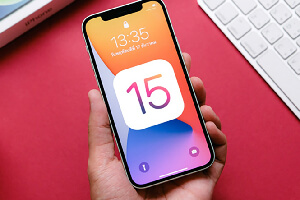How to Answer Interview Questions
Ever been in an interview and had a question that stopped you in your tracks? Suddenly your mind goes blank, your pulse starts to race, and you get that sinking feeling that things haven’t quite worked out the way you planned.
If this scenario fills you with dread, then this video is for you. We’ll guide you through some simple things you can do to answer even the trickiest interview question.
First off, put in the prep work. The best way to head off any tricky questions is to prepare for them. Find out as much as you can about the company and the role before the interview. Things like the job description, the job adverts, the organization’s websites and social media are all great sources of information. Use your research to brainstorm potential questions that could come up. What skills and experience will you need? How will your knowledge of the industry benefit the organization? What problems might you need to solve?
Next, identify the key competencies you’ll need to do the job. Will you need to demonstrate collaboration, communication or strategic thinking skills, for example? When you’ve got a list of competencies, think about how your current role matches up to them and write up some examples of how you’ve demonstrated them in your current or previous roles.
Next, research yourself. This may sound strange. After all, you’re already an expert in you, right? But how much time do you really spend looking at your own resume or analyzing your past work history, or even your social media activity? Researching yourself means there’s less chance you’ll be caught off guard by unexpected questions.
One of the most common and often dreaded questions that tends to come up in an interview is, “What are your strengths and weaknesses?” While it might be easy to talk at length about your strengths, you’ll need to be honest about your weaknesses, too. Keep your responses short and frame any weaknesses in a positive way. For example, you could say, “I struggle with confidence when giving presentations sometimes, but I’ve been working on this by learning about different presenting techniques and by putting myself forward for upcoming presentations.”
Sometimes, interviewers ask tough questions to see how well you perform under pressure. For example, “Tell me about your biggest failure as a project manager.” Beware of curveball questions, too, like, “If you were a superhero, what would your superpower be?” Or, “How many pennies would it take to make a pile as high as the Empire State Building?” These kinds of questions are designed to test how you react. So, keep your cool. They’ll also require some creative thinking and a good sense of humor. Take some time to think about your response and don’t start speaking before you know what you want to say. If you need more time, don’t be afraid to ask for it.
If you really don’t know how to answer the question, come clean. Don’t just make things up. The interviewer will likely realize what you’re doing and it could damage your credibility. Instead, explain where you’d go to find the answer.
Finally, rehearse. Ask a friend or family member to role-play the interview with you. This is a great way to narrow down your answers and boost your confidence before the interview.
To discover more examples of common interview questions and how to answer them, read the article that accompanies this video.















